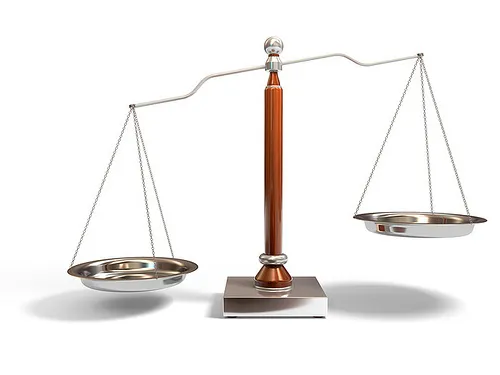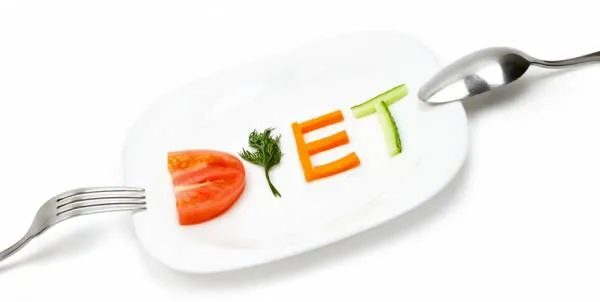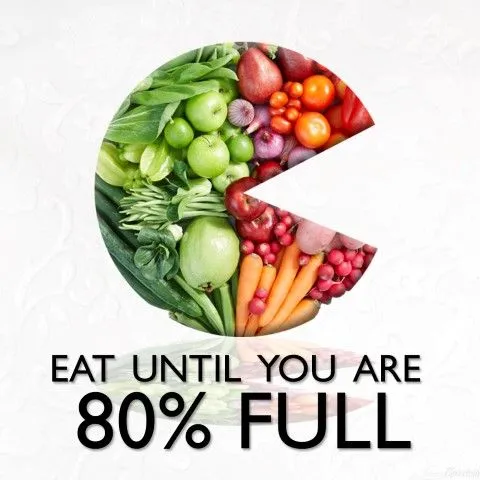Calories and Weight Loss
Obesity is an epidemic. In 2008, it was estimated that 35% of the worlds population was either over-weight or obese and the problem is only getting worse.
As a Personal Trainer, I work with people from all walks of life. Their common goal? Weight Loss. The reasons are obvious - health, energy, happiness, confidence, better relationships and being more able to do the things they want to do.
To lose weight, it is helpful to understand calories.
What is a calorie?
A calorie is a unit of energy. Officially, a calorie is how much energy it takes to heat one gram of water by one degree centigrade. A Calorie (with a capital C) is how much energy it takes to heat one kilo of water by one degree. When we talk about calories with regards to food, we are referring to the Calorie (with a capital C), but in popular usage the capitalisation has been dropped. Because of that we'll be using the common usage of 'calorie'.
We use the calorie as a unit of measurement for describing the energy contained in food.
- Proteins contain four calories per gram.
- Carbs contain four calories per gram.
- Fats contain nine calories per gram.
Why do calories matter?

The first law of thermodynamics states that energy can be neither created nor destroyed, only transferred. What that means for nutrition is this:
- If you get more energy from food than you burn, you'll need to put the remaining energy somewhere. That usually means you'll store fat. So too many calories = fat storage.
- If you eat less energy than you use, you still need to get energy from somewhere. That means you'll take energy out of fat stores to be used for daily activity and exercise.
Dieting and calories

Here's where things get complicated (sort of). There are thousands of popular diets out there, right? You could follow the ketogenic diet, the paleo diet, the low fat diet, the mindful eating diet or many many more. And the fact that you've heard of them, probably means they work. No one talks about a diet that doesn't work.
The only way any of these diets work, is if they result in less calories in than calories out. If you avoid all carbs, but eat too much food generally, you won't burn fat. That's the simple bit.
The complicated bit is that each diet might achieve a calorie deficit in a different way. Some might purely restrict calories, like Weight Watchers. Some might remove high calorie dense foods, like a low fat diet. Some might encourage eating foods that keep you full for longer such as paleo. Some diets might rely on different strategies to boost metabolism.
The 'best' diet in the world won't work unless you're eating less calories than you're burning.
So I should count calories?
Counting calories is actually fraught with problems. Many people laud it as the the ultimate way to lose weight - 'it's science' they way. Unfortunately, calorie counting is not exact, in any way. This is because:
- Calorie estimates can be off by up to 30%.
- Calorie data is based off data collected in the early 1900s.
- Calorie counts don't take in to account nutritional interactions.
- Calories don't take in to account genetic differences in digestion.
- Calorie models for energy expenditure don't take in to account metabolic and physiological differences.
So, should you count calories? Well you can. But it's not the holy grail of dieting as many would have you believe. It's not as simple as calories in and calories out and counting calories is an inaccurate art.

To conclude. If you are following a diet, but not losing weight. It's not because the diet is broken - it's because you're consuming more calories than your burning. It could be because your not exercising enough or your body has got used to the exercise you were doing, it could be because your metabolism has slowed down a bit or it could just be you're eating too much.
Try following the Japanese concept of Hara Hachi Bu. It means, eat until you're satisfied but not full or 'eat until 80% full' and your own natural hunger cues will help you take care of the rest. I mean, are you really going to plug calories into an app for the rest of your life?
If you have any questions about calories, please post them below!
Yours in health,
Coach Ben @healthsquared
#coachben